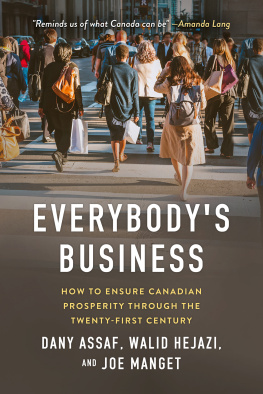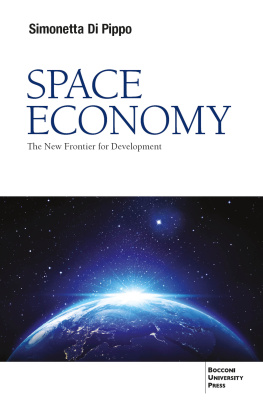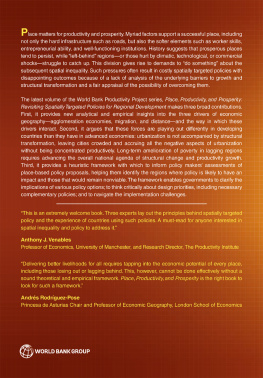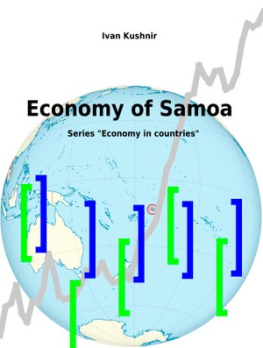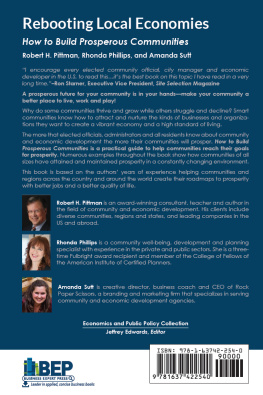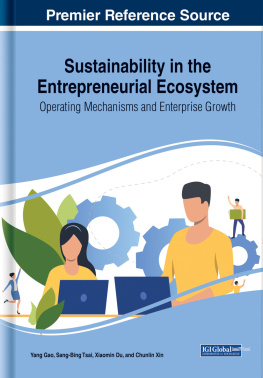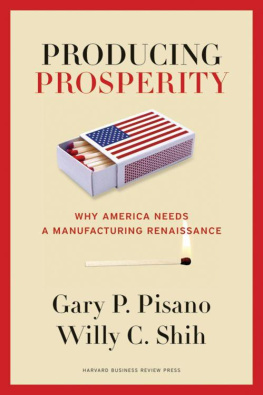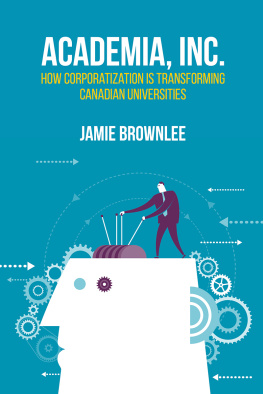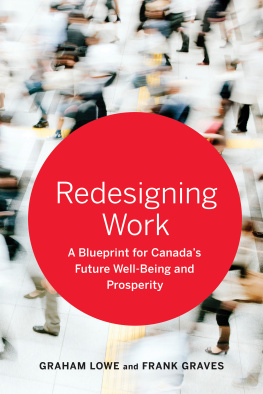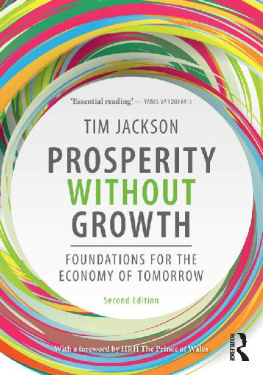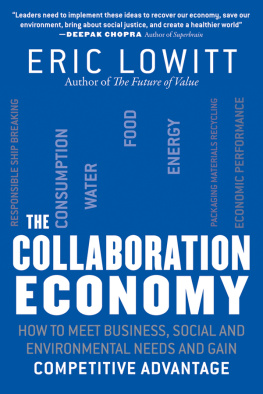The Way Ahead
Meeting Canadas Productivity Challenge
Governance Series
Governance is the process of effective coordination whereby an organization or a system guides itself when resources, power, and information are widely distributed. Studying governance means probing the pattern of rights and obligations that underpins organizations and social systems; understanding how they coordinate their parallel activities and maintain their coherence; exploring the sources of dysfunction; and suggesting ways to redesign organizations whose governance is in need of repair.
The Series welcomes a range of contributionsfrom conceptual and theoretical reflections, ethnographic and case studies, and proceedings of conferences and symposia, to works of a very practical naturethat deal with problems or issues on the governance front. The Series publishes works both in French and in English.
The Governance Series is part of the publications division of the Program on Governance and Public Management at the School of Political Studies. Nine volumes have previously been published within this series. The Program on Governance and Public Management also publishes electronic journals: the quarterly www.optimumonline.ca and the biannual www.revuegouvernance.ca
EDITORIAL COMMITTEE
Caroline Andrew
Linda Cardinal
Monica Gattinger
Luc Juillet
Daniel Lane
Gilles Paquet (Director)
the way ahead
MEETING CANADAS PRODUCTIVITY CHALLENGE
TOM BRZUSTOWSKI

University of Ottawa Press 2008
All rights reserved. No parts of this publication may be reproduced, stored in a retrieval system or transmitted in any form or by any means, electronic or mechanical, including photocopy, recording, or otherwise, without permission in writing from the publisher.
LIBRARY AND ARCHIVES CANADA CATALOGUING IN PUBLICATION
Brzustowski, T. A. (Thomas A.), 1937
The way ahead: meeting Canadas productivity challenge / Tom Brzustowski.
(Governance series, 1497-2972)
Includes bibliographical references and index.
ISBN 978-0-7766-0669-9
1. Industrial productivityCanada. 2. Labor productivityCanada. 3. Technological innovationsEconomic aspectsCanada. 4. Research, IndustrialEconomic aspectsCanada. 5. CanadaEconomic conditions21st century. 6. CanadaEconomic policy21st century. I. Title. II. Series: Governance series (Ottawa, Ont.)
HC120.L3B79 2008 3381060971 C2007-907000-0
Published by the University of Ottawa Press, 2008
542 King Edward Avenue
Ottawa, Ontario KIN 6N5
www.uopress.uottawa.ca
The University of Ottawa Press acknowledges with gratitude the support extended to its publishing list by Heritage Canada through its Book Publishing Industry Development Program, by the Canada Council for the Arts, by the Canadian Federation for the Humanities and Social Sciences through its Aid to Scholarly Publications Program, by the Social Sciences and Humanities Research Council, and by the University of Ottawa.
We also gratefully acknowledge the Telfer School of Management at the University of Ottawa whose financial support has contributed to the publication of this book.
Table of Contents
To Fraser Mustard,
for teaching experts to see the big picture
Preface
This is a practical book about economic change. Specifically, it is about the changes that I believe we must make to accelerate our productivity growth and make Canadians high quality of life sustainable. More particularly still, it describes the important role of science and engineering in meeting the productivity challenge.
Canada is a prosperous country, but it needs to become even more so if we are to maintain our quality of life. Our society is aging, and as the Baby Boomers retire and grow older they will not only stop creating wealth in productive work in the economy but will also consume more of societys wealth for their own health care. And whenever we open a newspaper or turn on the TV, we hear about many big and urgent problems beyond health care that already require billions of dollars to solve, and will require even more.
When viewed against this background, our poor record of low productivity growth and the continuing erosion of our purchasing power are a challenge and a warning. Our economy seems a curious mixture of the old and the new. We have a big appetite for the fruits of research and technology available in the modern knowledge-based open global economy, and we import and buy them in large quantities, but our own wealth creation largely depends on economic activity that belongs to an earlier age. We are good at science and engineering, but only a small number of our businesses translate that capability into commercial success. Broadly speaking, we have yet to master using our learning to create prosperity. As a result, we are slowly declining while many other countries are surging ahead. This may seem painless in the short term, but it spells disaster in the long term. Given the financial pressures we already see, we must act now to reverse the productivity trend, and bolster our wealth creation.
The good news is that we have the necessary conditions to do that. Canadians are a civil, peaceful, welcoming and generous society. We attract immigrants, and many among them bring important skills. We have a good education system that includes some world-class universities, excellent research in many important fields of science and engineering, and governments continuing to invest in them. We have very good engineers, strengths in many areas of manufacturing and construction, and we know how to build and manage engineering gigaprojects. We have some splendid examples of technology companies that have become major global successes. And the country is endowed with massive amounts of widely varied natural resources.
But the bad news is that necessary conditions are not sufficient. We must do much more of those things that we know how to do better than anyone else in the world, and we must do much better in all the areas that have been the mainstay of our economy. I think that the right measure in both cases is the value created by Canadians. I believe that we need nothing less than a national commitment to use all the assets at our disposal to create more value across the entire Canadian economy.
Good news, bad news, and now good news again. Solving those formidable problems will not be a one-shot affair. On the contrary, as we go about solving them, Canadians will be learning a great deal. As a result, we will acquire new capabilities and create new capacities that will be of great use in the future. And, in turn, the solutions will open up myriad opportunities for further advancement. If we keep seizing those opportunities, Canada could be riding the economists virtuous cycle (or the engineers positive feedback loop) to a very attractive future.
As I set out to write on this subject, I must confess to having some biases. These are beliefs that I have acquired in a variety of ways. Some are based on facts that have been established by research, and some are compelling conjectures that have so far eluded proof. Some others are elements of conventional wisdom that have gone unquestioned for so long that they now seem obvious, and help me make sense of a complex world. And, of course, like anyone else I have biases that are personal values reflecting who I am.
Here are four biases that bear on the subject of this book. To begin with, I believe that it is only the private sector that creates wealth. The public sector consumes wealth as it plays two different roles. First, it provides a supportive and normative framework for wealth creation by the private sector in various appropriate ways, through laws, regulations, treaties, incentives, etc. And, second, it is a concentrator of resources assembled through the tax system. In this role, it pays for the essential activities of society as a whole, such as education, health care and social assistance, which redistribute those concentrated resources. But it also does the very opposite, focusing those resources when it makes investments in major projects.
Next page

